LACIS Festival de Cine: 21st Century Catalan
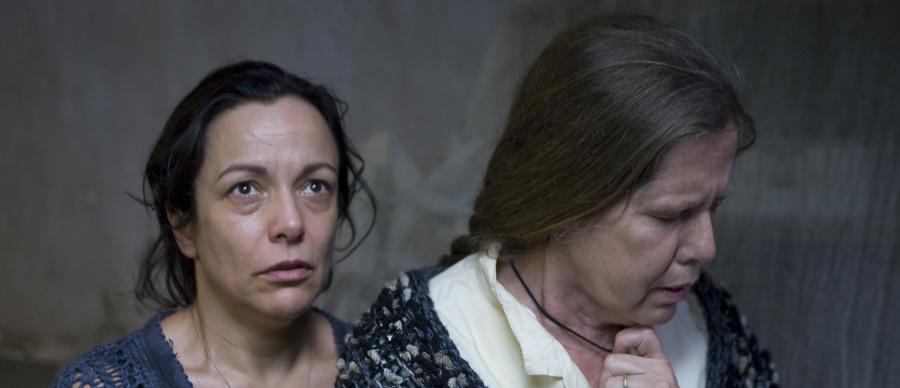
Although the language is spoken by only a fraction of Spain’s population, Catalonia is home to many of the country’s (and planet’s) most ambitious filmmakers. This is a particularly fervent moment for Catalan cinema, with Black Bread sweeping the Spain’s Goya awards and becoming the first Catalan submission for the Academy Awards, as José Luis Guerín and Albert Serra win equivalent laurels on the festival circuit. Our series spotlights recent developments in Catalonia, and although the films are aesthetically varied, their directors share a deep interest in history, ranging from Agustí Villaronga’s post-civil war drama to Serra’s medieval mediation. Pere Portabella (whose most recent feature investigates the life of Bach) and Guerín are masters of the essay film, expanding on the restless formal experiments of stalwarts like Chris Marker and Harun Farocki, while infusing their work with intellectual spontaneity. Arthouse filmmakers don’t come much more unique than Serra, whose two minimalist adaptations of canonical texts herald the arrival of an emerging master, and Ramon Térmens, whose one-man omnibus weaves a complex portrait of Catalan politics. None of the films in our series have U.S. distribution, so take advantage of this rare opportunity for immersion in one of Europe’s most adventurous filmmaking scenes.
Supported in part by the Program for Cultural Cooperation between Spain's Ministry of Culture and United States Universities, UW's Latin American, Caribbean and Iberian Studies program (LACIS), and the Center of European Studies (CES). Special thanks to Patricia Bonet Ibeas and Cata Massana i Salvat (Catalan Film & TV), Esther López (TV Ovideo), Ramon Térmens (Segarra Films), Delphine Eon (Beta Cinema), Juan Egea (Department of Spanish and Portuguese), Ellen Sapega (CES) and Alberto Vargas (LACIS) (MK)
- Fri., Jan. 27 | 7:00 PM4070 Vilas Hall
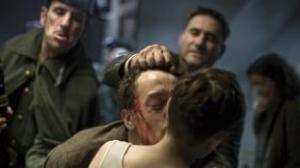
11-year-old Andreu, who belongs to the losing side in the post Spanish Civil War era, finds the bodies of a man and his son in the forest. When the local police suspect Andreu’s father, Andreu decides to find the real killer. Veteran director Villaronga’s drama has been decorated with 9 Goya awards (including Best Picture and Best Director), 13 Gaudí awards (including Best Picture and Best Director) and is the official Spanish Entry for Best Foreign Language Film for the 2012 Academy Awards. Print provided by Beta Cinema. Preceded by NO AL NO (Directed by Pere Portabella, Spain, 2006, Digital Projection, 3 min.) Valencian Composer Carles Santos plays one of his pieces on the piano. Portabella’s film was made for the exhibit on Carles Santos, ¡Visca el piano!, held at the Miró Foundation in summer of 2006. (KK)
- Fri., Jan. 27 | 9:00 PM4070 Vilas Hall
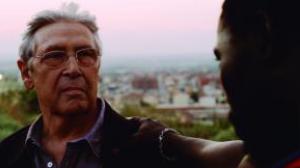
With plenty of intelligence, wit and compassion, director Térmens explores Catalan’s current attitudes toward immigration. In his three part film we first witness that there is no chance of rehabilitation for an ex-convict returning home after serving time for rape. The second story follows a Senegalese immigrant whose first task as a debt collector is to make sure that a rightwing, anti-immigrant politician pays up. In the final part, a businessman becomes a media celebrity after killing an immigrant he caught burglarizing his home. (KK)
- Sat., Jan. 28 | 7:00 PM4070 Vilas Hall
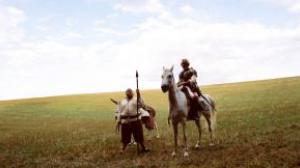
Named one of the top ten films of 2007 by Cahiers du Cinema, Albert Serra’s adaptation of Don Quixote is appropriately quixotic. Faithful to the mad spirit of Cervantes rather than the specifics of the novel, Serra perfectly cast a retired tennis coach and a construction worker as Quixote and Sancho Panza, (both of whom give performances at once haunting and hilarious) and shifts the focus towards the interstitial moments shared by the idling adventurers. No one tilts at windmills in this rich, painterly film; instead, the quiet succession of pastoral scenes becomes a transcendent reverie for a literary legend. “One of those films that periodically appears in a hostile, conformist environment – like a UFO landing – that causes viewers and critics to ponder the place of a movie theater, or how films operate on spectators. It has a kind of alchemic, transformative power, creating the type of displacement that is normally used to describe the effect of Hollywood blockbusters.” (Mark Peranson, FIPRESCI) Preceded by LA TEMPESTA (Directed by Pere Portabella, Spain, 2003, Digital Projection, 6 min.) Naked bodies are buffeted by water accompanied by music from the opera La Cenerentola and the overture to Il Barbiere di Siviglia, both by Gioacchino Rossini. (MK)
- Sat., Jan. 28 | 8:45 PM4070 Vilas Hall
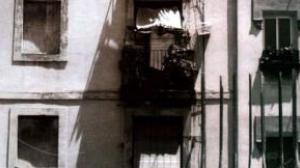
Guerin, one of Europe's most influential and innovative non-fiction filmmakers, purposefully confounds narrative and documentary traditions in En Construcción. While the film's subject seems to be the building of an apartment block in the city's rough Barrio Chino, Guerin discovers rich narrative threads woven into the tapestries of his real life subjects: workers, immigrants, prostitutes and drug dealers. Shot over 18 months and edited from 120 hours of footage, the film is made up of staged and semi-staged episodes featuring neighborhood residents and workers at the construction site. (KK)
